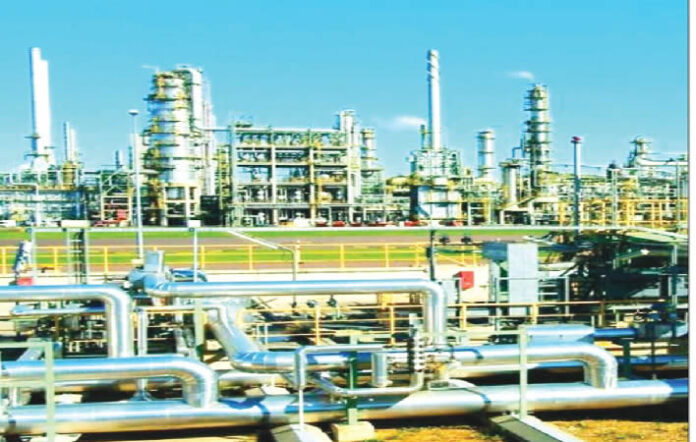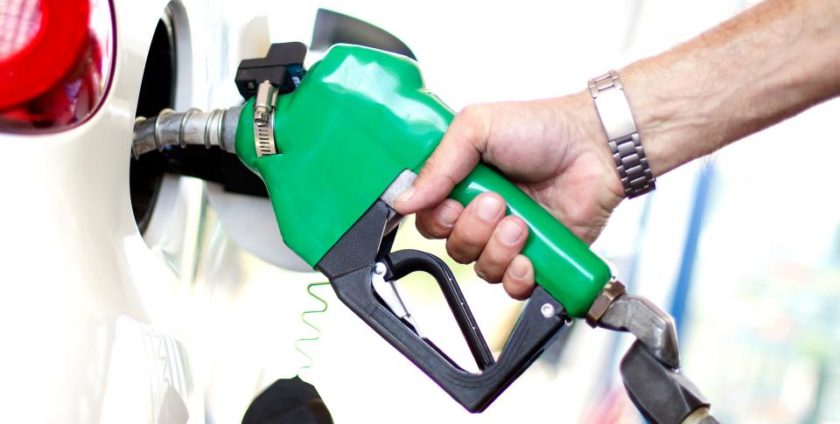Our Diesel Not Inferior To Imported Ones, Dangote Replies Critics
The President of Dangote Industries, Alhaji Aliko Dangote, Saturday, dismissed the claim by critics that the quality of diesel produced by Dangote Refinery in terms of sulphur is the lowest in West Africa.
Dangote spoke during a visit by a delegation of the House of Representatives to the refinery in Lagos.
He also addressed concerns about monopoly.
“Another complaint was about the initial drop in diesel prices. Even at 650-750 PPM, our diesel quality was better than imported fuel. Problems with vehicles are due to bad imported fuel. We still stand by our quality, and you can verify it by checking samples from filling stations”, the richest man in Africa said.
The Nigerian Midstream and Downstream Petroleum Regulatory Authority
Nigerian Midstream and Downstream Petroleum Regulatory Authority NMDPRA. We are the Best Oil and Gas Regulators in Nigeria. At NMDPRA we stimulate and create an enabling environment that…
(NMDPRA) Chief Executive, Farouk Ahmed, had said, on Thursday: “So, in terms of quality, currently, the AGO (diesel) quality (of Dangote Refinery) in terms of sulphur is the lowest as far as West Africa’s requirement of 50 parts per million (ppm).
“Dangote refinery, as well as some major refineries like Waltersmith Refinery, produce between 650 ppm and 1,200 ppm. So, in terms of quality, their quality is much more inferior to the imported quality”
Ahmed also said the allegations raised by the refinery that its operations were being scuttled owing to a lack of supply of crude oil by International Oil Companies (IOCs) were untrue.
“Well, just like you rightly asked, there are lots of concerns about the supply of petroleum products nationwide and the claims by some media houses that we were trying to scuttle the Dangote refinery; that is not so”, he added.
“Dangote Refinery is still in the pre-commissioning stage. It has not been licenced yet.
“We have not licensed them yet. I think they are at about 45 per cent completion.
“So we cannot rely heavily on one refinery to feed the nation because Dangote is requesting that we should suspend or stop all importation of petroleum products, especially automotive gas oil (AGO) or jet kero and direct all marketers to the refinery”.
He explained that the expectation was not good for the nation in terms of energy security and also not good for markets because of monopoly.
But addressing issues surrounding the refinery when the House delegation visited the site, yesterday, Dangote said: “Regarding diesel quality, we started with 600-700 PPM because it was a new plant.
“I invite the leadership of the House to set up a committee to take samples from fueling stations and our production line to verify quality.
“All the test certificates being circulated could be fake, and it’s essential to have a reliable testing process”.
On the issue of monopoly, Dangote said: “In terms of monopoly concerns, if we are questioned about how Dangote can supply the market, consider the 4 billion Naira that NNPC spent on activating their refineries in Kaduna, Warri, and Port Harcourt.
“If their refineries are operational, we cannot be considered a monopoly.
“They are actually more powerful than us, so we cannot truly be a monopoly.
“Regulators have given excuses to issue licenses for bad products under the guise of avoiding monopoly.
“If NNPC is the sole importer of PMS, why are they not considered a monopoly?
“We came to save the nation, and it’s unfair to label us a monopoly.
“We planned to start sales next year, but we avoid starting now to avoid further monopoly claims.
“We adjusted the diesel price to 1,200 due to high profit margins. Even with the current exchange rate, diesel remains below 1,200 Naira, justifying our pricing.
“Claims by Darkman that we sold at an incorrect price are untrue. We are also selling in Naira to lower prices, despite NNPC only accepting dollars. Our primary interest is Nigeria’s growth, as our own growth is tied to Nigeria’s”.
Speaking on the NNPC stake in the refinery, Dangote explained: “You know, one billion dollars, which is about 7.2% as a deposit, was agreed upon.
“We also granted an additional year, which expired on June 30. On June 4, I asked the group CEO about their plans, and he mentioned they want to remain at 7%, which means they won’t be able to pay. They notified us, but we have yet to receive anything in writing”.
On other challenges, Dangote said, “You know, one billion dollars, which is about 7.2% as a deposit, was agreed upon.
“We also granted an additional year, which expired on June 30. On June 4, I asked the group CEO about their plans, and he mentioned they want to remain at 7%, which means they won’t be able to pay. They notified us, but we have yet to receive anything in writing.
“People often misunderstand the nature of this project. Over the last seven years, we went through 31 projects, and only three are here.
“Most of the funding was our own, as we avoided project financing due to the stringent requirements.
“The collapse of the Naira to N1,500-N1,600 exacerbated the pressure.
“Despite COVID-19, our international bankers did not agree to waivers or delayed payments, forcing us to continue payments throughout.
“The 70% payment mentioned was due to the long-term struggle. We experienced a significant loss of over $600 million due to delays, including a three-and-a-half-year delay by Governor Amosun of Ogun State.
“We faced substantial delays from 2013 until 2017, leading to financial losses. During this period, we suffered a loss of over $600 million because we could not return the borrowed money.
“We had already paid financial advisors, and had to keep faith that the project would succeed.
Eventually, we secured a license with the help of President Jonathan, despite initial resistance.
“The total amount allocated from the Central Bank was $2.7 billion over 13 years (2013-2023), including interest and principal repayments. An additional $200 million in forward allocations is still pending.
“Dangote Industries brings its dividends back to Nigeria, so there’s no depleting of Nigerian resources. The notion that Dangote’s major projects depleted Central Bank funds is incorrect”.





